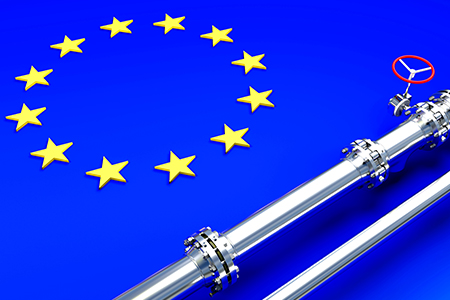The Committee of Permanent Representatives (Coreper) today endorsed the Council’s position on amending the EU gas storage regulation, approving a two-year extension of existing gas storage obligations and introducing greater flexibilities for member states. This agreement forms the Council’s negotiating mandate ahead of interinstitutional talks with the European Parliament.
Strengthening Energy Security with Extended Storage Targets
In response to ongoing geopolitical instability and volatility in global energy markets, the Council supports the European Commission’s proposal to extend the requirement for EU member states to fill gas storage facilities to at least 90% ahead of each winter season. This extension, set to remain in force until the end of 2027, aims to:
-
Ensure predictability and transparency in gas supply
-
Reduce the EU’s vulnerability to price shocks
-
Bolster energy security and gas market stability in the interim period before a potential EU-wide framework is adopted
Flexibility for Member States to Navigate Market Dynamics
To enable member states to better respond to shifting market conditions and optimize gas purchasing strategies, the Council mandate includes several new flexibilities:
-
Extended compliance window: The binding 90% storage target may now be achieved anytime between 1 October and 1 December, rather than the previous 1 November deadline.
-
Indicative intermediate targets: Milestones set for February, May, July, and September are designated as non-binding, offering market participants greater operational flexibility while maintaining transparency.
-
Deviation allowances:
-
Up to 10% deviation permitted in cases of adverse market conditions (e.g., price manipulation).
-
Further deviation may be authorized by the Commission via a delegated act if unfavorable conditions persist.
-
A 5% deviation is allowed if national gas production exceeds average annual consumption over the past two years or if storage sites over 40 TWh face slow injection rates. This exception is contingent upon ensuring that it does not negatively impact the internal market or supply to protected customers in connected states.
-
Next Steps
Negotiations between the Council and European Parliament are expected to begin in May, following the Parliament’s adoption of its negotiating mandate. Once a provisional agreement is reached, the final regulation will be formally endorsed by both institutions before publication in the EU’s Official Journal and subsequent entry into force.
Background
The gas storage rules introduced in 2022 significantly improved the EU’s energy preparedness following the crisis triggered by Russia’s invasion of Ukraine. With gas storage facilities accounting for around 30% of the Union’s winter gas consumption, their strategic value remains critical.
While the current obligations are set to expire in 2025, persistent uncertainty in the global gas market has prompted the Commission and Council to act decisively. By extending and adapting these measures, the EU reaffirms its commitment to safeguarding energy supply and strengthening resilience across member states.



